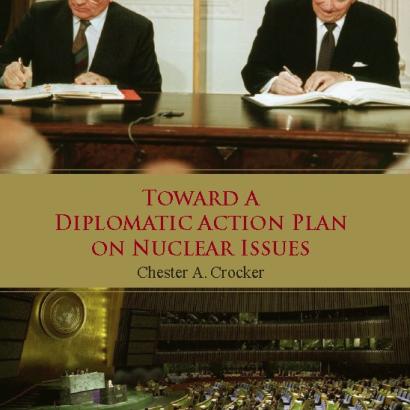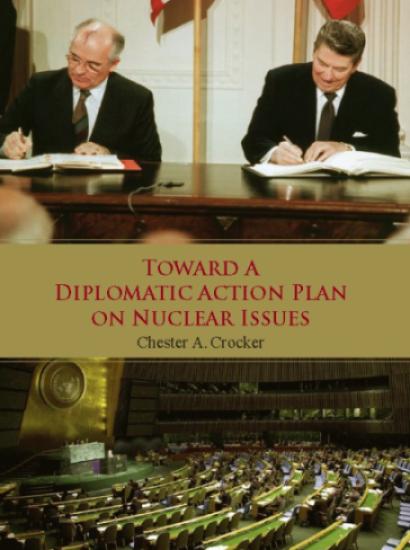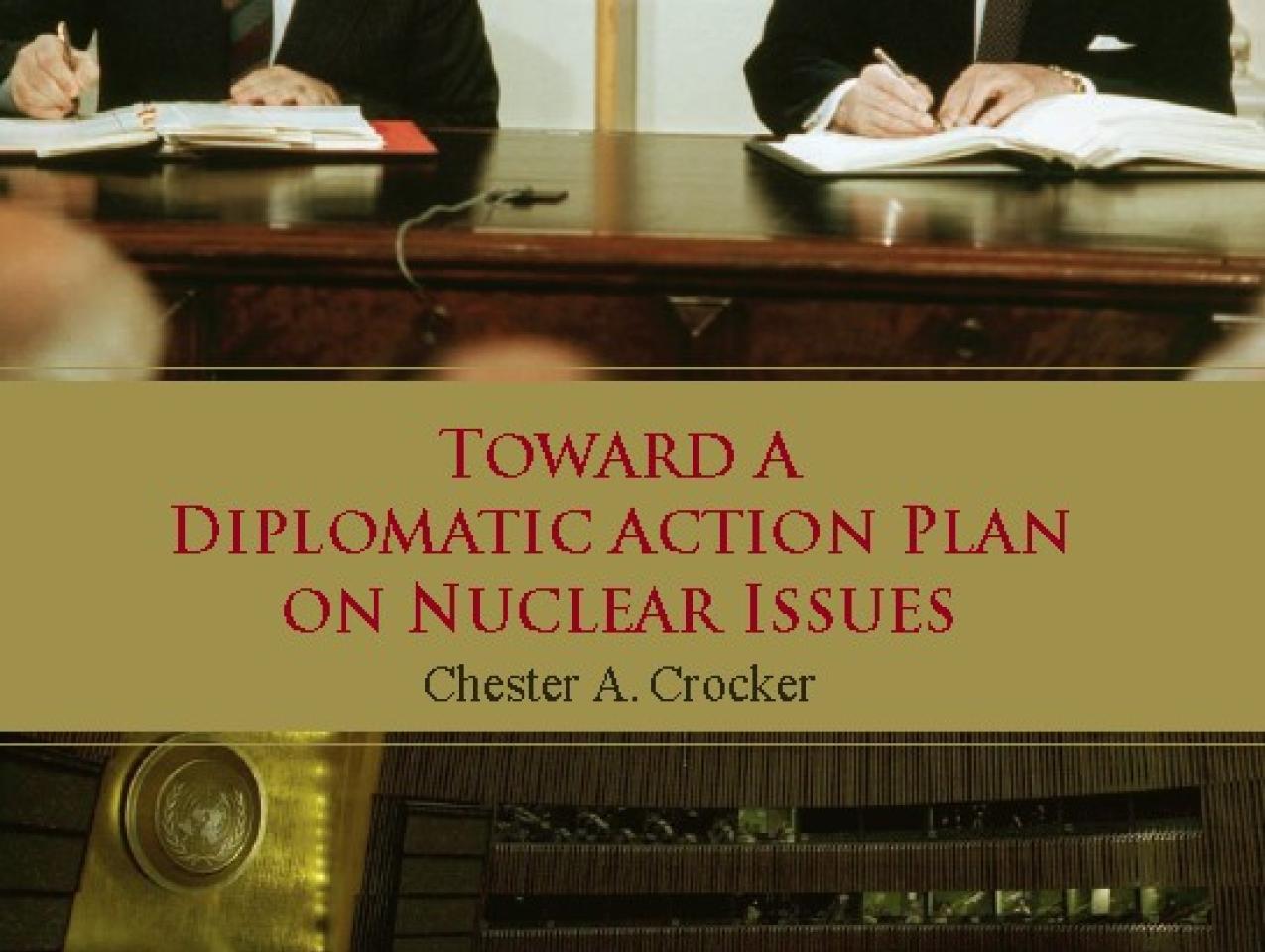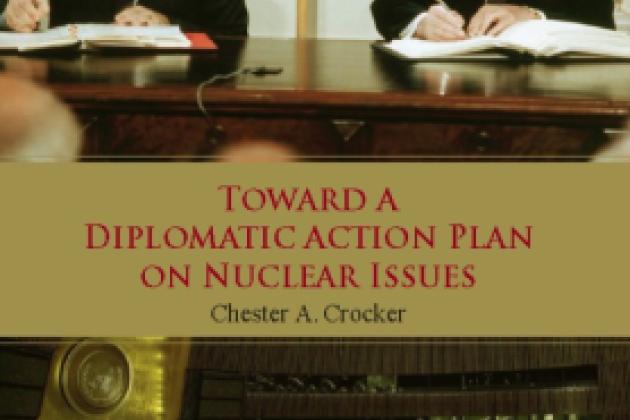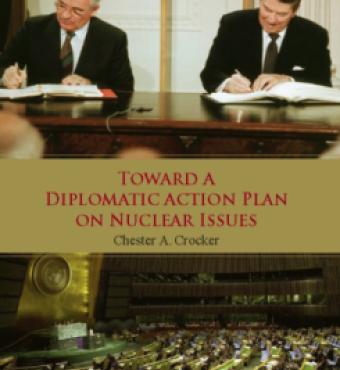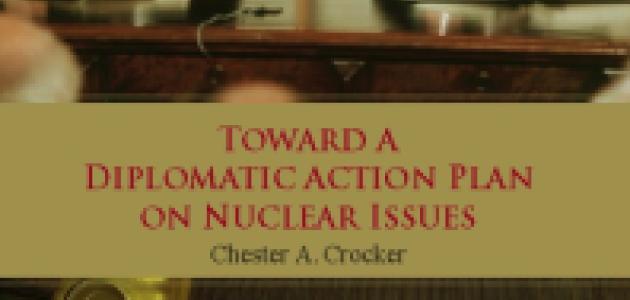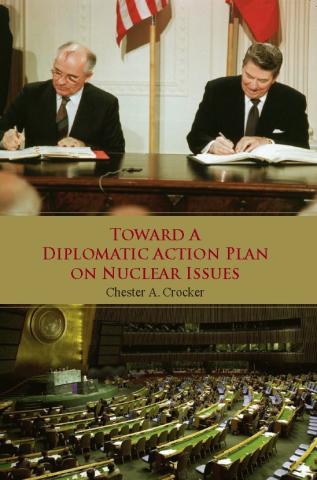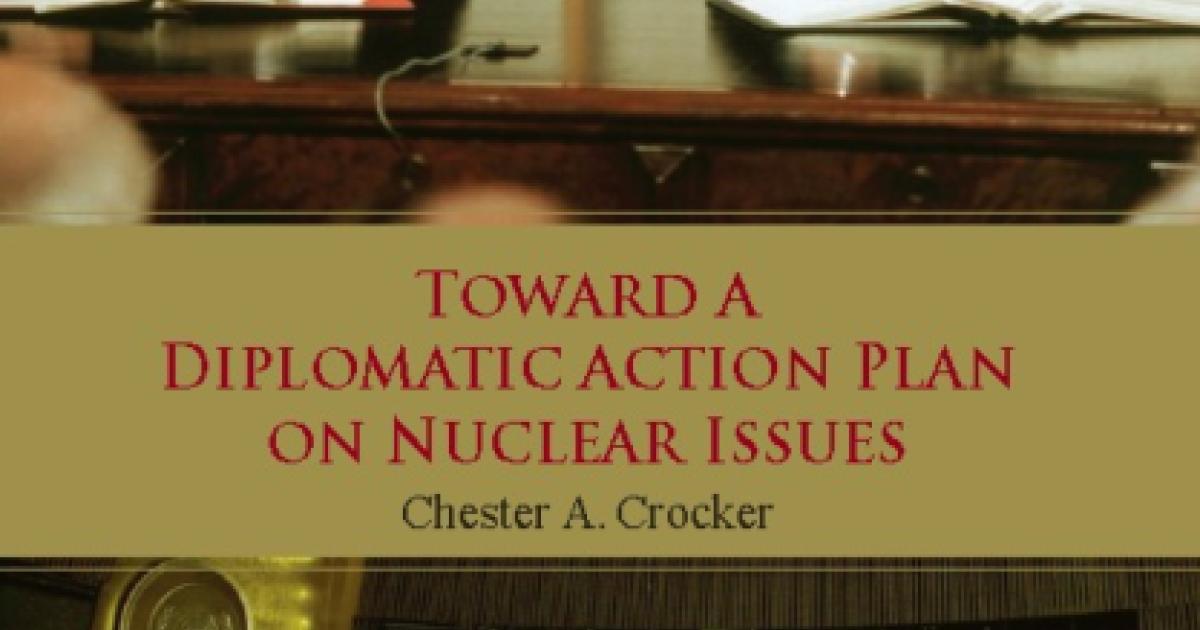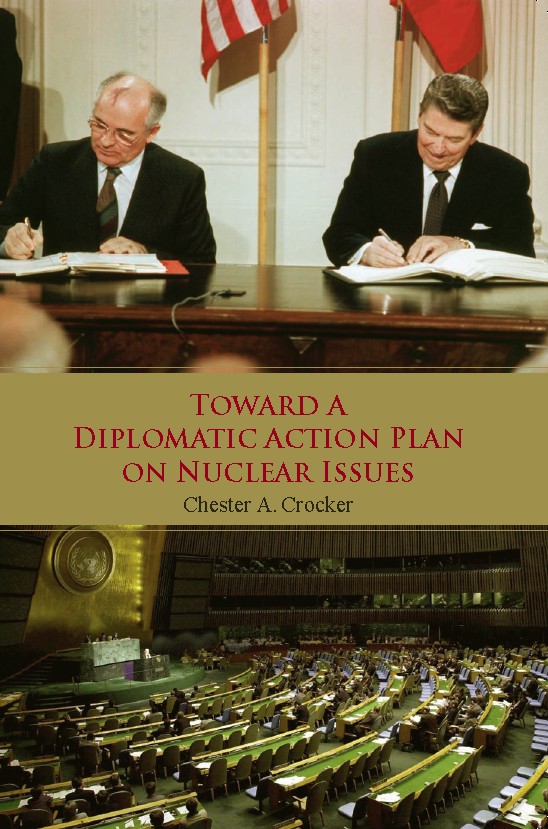
How can the United States develop a diplomatic strategy to reduce the role of nuclear weapons and prevent their spread beyond today’s nuclear weapons states? Chester A. Crocker, former U.S. ambassador, outlines a process in Toward a Diplomatic Action Plan on Nuclear Issues (Hoover Press, 2009).
Crocker describes a six-step plan that (1) lays out certain assumptions about how the new administration should approach and carry out the nuclear agenda; (2) identifies critical obstacles and geopolitical linkages; (3) outlines basic policy choices and defines the parameters of a fresh nuclear diplomacy; (4) determines the elements of a U.S. launch strategy; (5) sets out ideas for U.S. diplomacy with core states; and (6) explores the role of institutions and forums in future nuclear governance.
“A new administration has the potential to develop fresh leverage and regain the international initiative,” says Crocker. He cautions that if it takes up the nuclear agenda, the new administration must be prepared to devote adequate resources to see it through.
Crocker is the James R. Schlesinger Professor Strategic Studies at Georgetown University’s Walsh School of Foreign Service and serves on the board of its Institute for the Study of Diplomacy. From 1981 to 1989, Crocker served as assistant secretary of state for African affairs. Crocker chaired the board of the United States Institute of Peace from 1992 to 2004 and continues to serve as a board member.
The Hoover Institution gratefully acknowledges the John D. and Catherine T. MacArthur Foundation and the William and Flora Hewlett Foundation for their generous support of the joint Hoover Institution/Nuclear Threat Initiative project on Steps toward a World Free of Nuclear Weapons, of which this publication is an integral part.
The publication is available at no cost.







